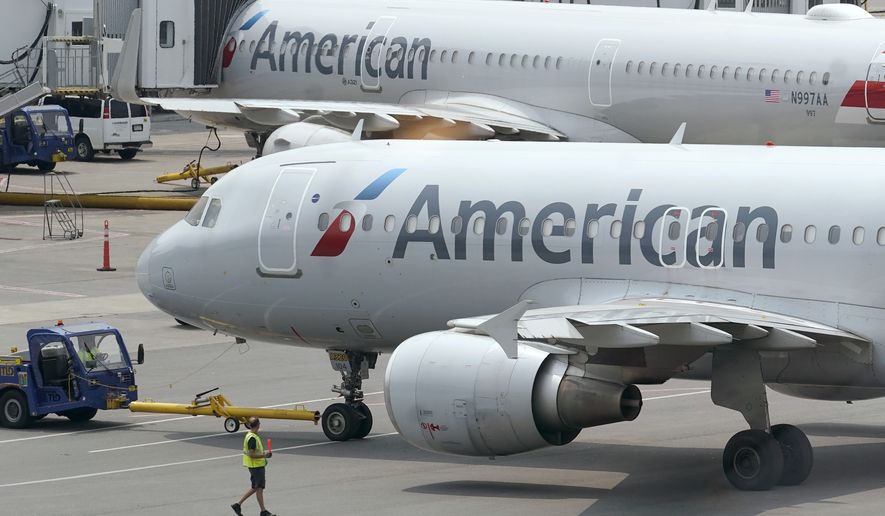American Airlines is the most faith-friendly among the Fortune 500 companies, according to a religious freedom survey released Monday.
The 2022 Corporate Religious Equity, Diversity & Inclusion (REDI), compiled by the Religious Freedom & Business Foundation, measures corporate commitment to “workplace religious inclusion” — specifically, how faith is included as part of a company’s overall diversity initiatives.
Four technology-related companies — chipmaker Intel Corp., computer manufacturer Dell Technologies, online payments firm PayPal and semiconductor maker Texas Instruments — round out the top five on the REDI index.
The Annapolis-based foundation said data center provider Equinix, retail giant Target, food processor Tyson Foods, financial services firm AIG and online search leader Alphabet/Google complete the top 10 ranking of firms committed to supporting employees in their faith.
An American Airlines spokesman told The Washington Times via email: “We are grateful to be recognized by the Religious Freedom & Business Foundation for our efforts to create a diverse, inclusive workplace for people of all walks of life and backgrounds, and an environment that values diverse perspectives and experiences.”
Results of the foundation’s third-annual survey are to be released Monday at the group’s Dare to Overcome conference, a gathering for corporate chaplains and facilitators of employee resource groups.
The conference, which organizers say is open to “all faiths and beliefs,” allows people to share best practices on how companies can accommodate the religious needs of workers.
“This is really an example that religion, which often seems to be something that can be polarizing, is something that brings people together,” foundation President Brian Grim said. “What’s happening in corporate America is not just good for business, but it’s a great example of how our society can also benefit by working, seeing how we can work together and respect people of all faiths and beliefs.”
Mr. Grim said “working together” is the right thing for companies to do and can help them retain employees in a challenging job market.
“If some of your best employees happened to be people of faith … you don’t want to lose them,” he said.
Of the 500 companies in the Fortune magazine list, 202 mention, refer to or illustrate religion on their main diversity landing page, according to the foundation’s report. Firms publicly reporting employee resource groups addressing faith numbered 37, or 7.4%, of the Fortune 500.
The foundation’s survey found several positive practices among the most faith-friendly firms. The companies say training employees on religious diversity and inclusion “is seen as a benefit to a wide range of stakeholders, contributing to positive workplace cultures and a better understanding of customers and markets,” the report said.
The firms also provide corporate chaplains “or other forms of spiritual care” for employees, and offer “clear procedures” to workers reporting religious discrimination or requesting a religious accommodation. The firms also often match workers’ donations to faith-based charities, the foundation said.
A significant activity among top-scoring companies is that they “enthusiastically share” their best practices in the area of faith inclusivity with other firms, including competitors, via direct consultations, seminars, roundtables and conferences.
The 2022 survey expanded from polling the top 100 on the Fortune list to include not only the full roster of 500 companies but also allow other firms to opt-in and disclose their faith-supporting practices.
Among the smaller firms participating were TeaPak, a northern Italy-based processor of herbal teas and infusions and a supplier to Yogi Tea group, and Qualtrics, which tracks experience management and customer engagement. Both firms scored high on the index, Mr. Grim said.
“What we do on Friday, Saturday and Sunday comes right in the door with us on Monday,” he said. “For many people, their religious experiences, convictions and beliefs, are what motivates them in life. Businesses that let people feel that they recognize that will do much better because then people feel like they’re welcome. They’re valued as people and not just as bots or robots to come to work and punch out something and go home.”
• Mark A. Kellner can be reached at mkellner@washingtontimes.com.




Please read our comment policy before commenting.